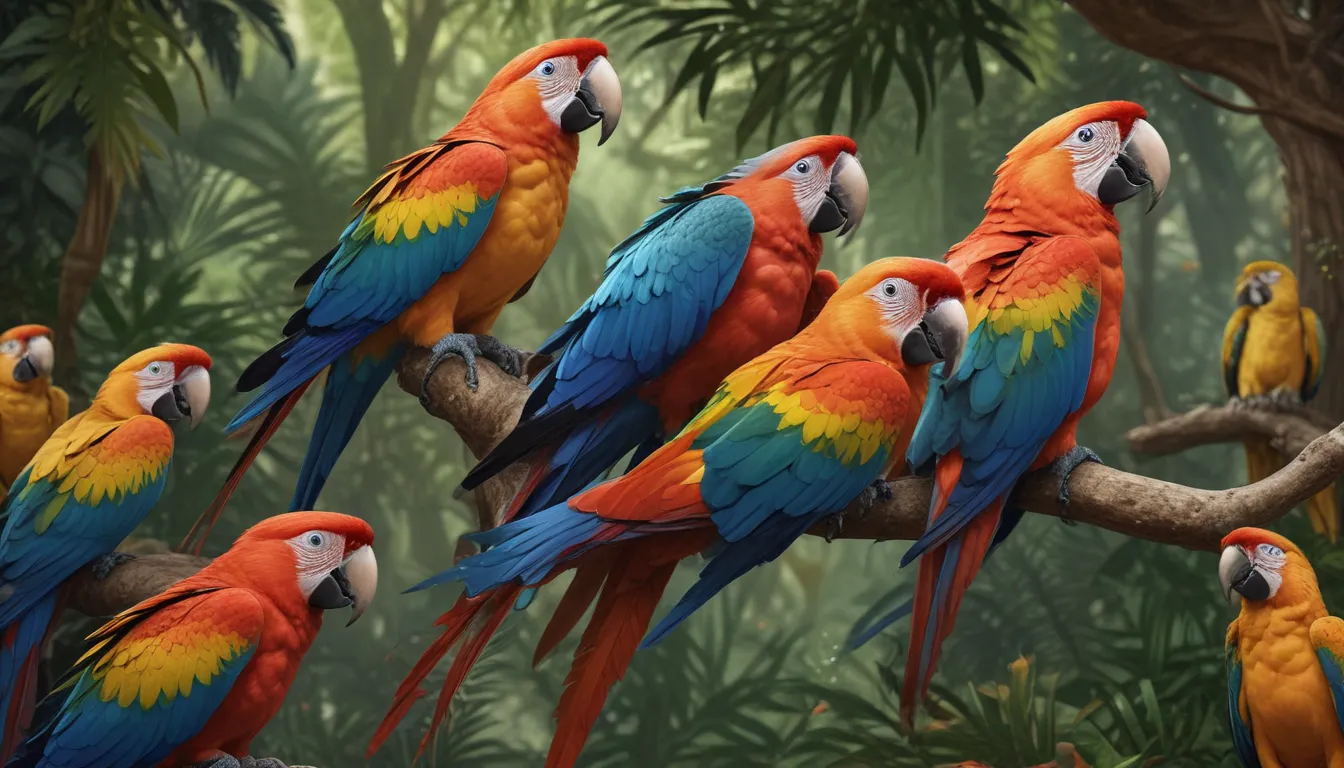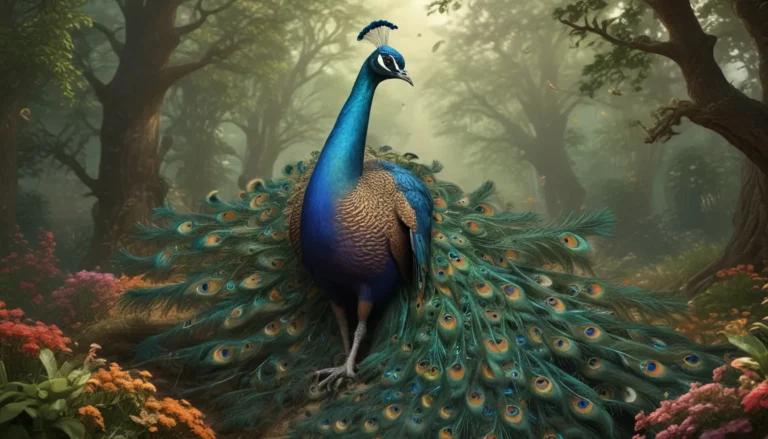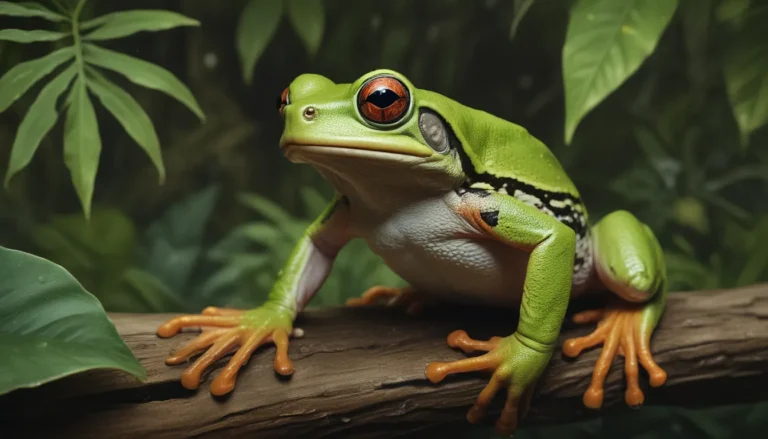The pictures we use in our articles might not show exactly what the words say. We choose these pictures to make you interested in reading more. The pictures work together with the words but don’t take their place. The words still tell you the important facts.
Are you ready to delve into the vibrant and fascinating world of macaws? These beautiful birds, known for their stunning plumage and impressive size, have a rich history and cultural significance that captivate bird enthusiasts and casual observers alike. In this article, we will explore 15 fascinating facts about macaws, shedding light on their unique characteristics, behaviors, and conservation efforts. From their vibrant feathers to their intelligent nature, there is so much to learn and appreciate about these majestic creatures. So, let's soar into the world of macaws and uncover the wonders that make them truly remarkable!
Unveiling the Beauty of Macaws: Their Vibrant Feathers
One of the most striking features of macaws is their vibrant and colorful plumage. With hues of blue, yellow, green, and red, these stunning feathers not only add beauty to the birds but also play a crucial role in attracting mates. The vibrant colors of macaws are a visual feast for the eyes and serve as a testament to the beauty of nature.
The Brilliance of Macaws: Their Exceptional Intelligence
Macaws are renowned for their exceptional intelligence. These intelligent birds have the remarkable ability to mimic human speech patterns and learn complex tasks. Their cognitive abilities make them popular pets and enable them to adapt to various environments in the wild. The intelligence of macaws is truly remarkable and adds to their charm and appeal.
The Mighty Beak of Macaws: A Powerful Tool
One notable characteristic of macaws is their strong and powerful beaks. Designed for cracking open nuts and seeds, their beaks also serve various purposes such as climbing, manipulating objects, and self-defense. The strength and versatility of their beaks showcase the adaptability and resourcefulness of these magnificent birds.
The Longevity of Macaws: Lifelong Companions
Macaws are known for their long lifespan, with some species living up to 60 years in captivity and around 30 to 50 years in the wild. This extended lifespan makes them lifelong companions for those who choose to keep them as pets. The bond between macaws and their caregivers can endure for decades, creating lasting connections filled with love and companionship.
The Social Nature of Macaws: Thriving in Company
Macaws are highly sociable creatures that thrive in the company of others. They are often found in large groups known as flocks, where they communicate through various vocalizations. Whether interacting with their fellow birds or forming strong bonds with their human caregivers, macaws are truly social beings that value connection and companionship.
The Habitat of Macaws: Lush Rainforests of South America
Macaws are native to the rainforests of South America, where they are found in countries such as Brazil, Peru, and Ecuador. These diverse and rich habitats provide them with abundant food sources and offer a suitable environment for breeding and nesting activities. The lush rainforests of South America are the perfect home for these majestic birds.
The Feet of Macaws: The Zygodactyl Structure
One fascinating characteristic of macaws is their zygodactyl feet, which feature two toes facing forward and two toes facing backward. This unique foot structure enables them to have a strong grip on branches, aiding in climbing, grasping food, and manipulating objects. The agility and dexterity of their feet showcase the remarkable adaptations of macaws to their environment.
The Commitment of Macaws: Lifelong Monogamous Bonds
Macaws are known for forming lifelong monogamous bonds with their mates. Once they find a partner, they remain together for life, engaging in activities such as preening, feeding, and nesting together. This commitment ensures a stable and enduring relationship built on trust and devotion.
The Role of Macaws: Guardians of Forest Ecosystems
Macaws play a vital role in forest ecosystems through seed dispersal. By consuming fruits and nuts, they inadvertently scatter seeds across vast distances, contributing to the regeneration and diversity of plant life. Their role as guardians of the forest highlights the importance of preserving their habitats for the well-being of ecosystems and biodiversity.
The Diet of Macaws: Specialized Nutritional Needs
Macaws have specific dietary requirements that must be met for optimal health. A balanced diet of fruits, vegetables, nuts, and seeds provides them with essential nutrients and prevents nutritional deficiencies. Meeting their nutritional needs is essential for their well-being and longevity.
The Flight of Macaws: Masterful Aviators
Macaws are excellent fliers, possessing strong wings that allow them to reach impressive speeds and perform stunning aerial acrobatics. Their ability to navigate their habitat with ease and evade potential predators showcases their mastery of flight. The grace and agility of macaws in flight are a sight to behold.
The Threats to Macaws: Facing Habitat Loss
Unfortunately, macaws are threatened by habitat loss due to rapid deforestation. The destruction of their natural habitat has led to a decline in their population, making conservation efforts imperative for their survival. Preserving their habitats and implementing conservation programs are essential steps in protecting these majestic birds.
The Trainability of Macaws: Intelligent Learners
Due to their intelligence and sociability, macaws are highly trainable birds. They can be taught various commands, tricks, and even basic communication. Training sessions not only provide mental stimulation for these birds but also strengthen the bond between them and their caregivers. The trainability of macaws reflects their adaptability and willingness to learn.
The Vocal Range of Macaws: Distinctive Calls
Macaws are known for their loud and distinctive calls that can be heard for miles. These vocalizations serve various purposes such as communication within their flock, mate attraction, territorial displays, and warning signals. The unique vocal range of macaws adds to their charisma and charm.
The Protection of Macaws: Safeguarded by International Laws
Recognizing the importance of preserving these magnificent birds, macaws are protected by international laws and regulations. Trade restrictions and conservation programs have been implemented to control the capture and trade of macaws and promote their conservation in the wild. The protection of macaws ensures their survival and well-being for future generations to appreciate.
Conclusion: Embracing the Beauty of Macaws
In conclusion, macaws are truly remarkable creatures that captivate us with their vibrant colors, intelligence, and social nature. From their vibrant feathers to their unique vocal abilities, macaws are captivating birds that inspire awe and admiration. Whether in the wild or as pets, macaws bring joy, companionship, and a colorful presence to our lives. By understanding and appreciating these magnificent birds, we can contribute to their preservation and ensure a future where they continue to grace the skies with their beauty and grace.
FAQs: Answers to Your Burning Questions About Macaws
-
Are macaws endangered?
Some species of macaws are endangered, while others are of least concern. Threats such as habitat destruction and illegal pet trade pose risks to all macaw species. -
How long do macaws live?
Macaws have a long lifespan, with some species living up to 50-60 years in the wild and even longer in captivity, making them a long-term commitment for potential owners. -
Are macaws good talkers?
Yes, macaws are known for their ability to mimic human speech and sounds with proper training and socialization. -
Can macaws be kept as pets?
Macaws can be kept as pets but require significant time, attention, and care. Responsible sourcing is crucial to avoid supporting illegal wildlife trade. -
How much space do macaws need?
Macaws need spacious cages or aviaries for exercise, with the minimum recommended cage size typically around 2 meters in height, 1 meter in width, and 1.5 meters in length. -
Are macaws loud?
Macaws are known for their vocalizations, ranging from playful squawks to loud calls, so potential owners should be prepared for their noise level. -
Do macaws require a special diet?
Yes, macaws need a varied diet of fruits, vegetables, seeds, nuts, and formulated pellets to ensure optimal health. Consulting with avian experts can help create a balanced diet plan. -
Can macaws be trained?
Macaws are highly intelligent and trainable birds that respond well to positive reinforcement techniques, learning various behaviors and tricks with consistent training. -
How do macaws communicate?
Macaws communicate through vocalizations, body language, and mimicry to express emotions, establish territory, and interact with their flock. -
Can macaws live with other pets?
Macaws can potentially live with other pets with proper supervision and introductions to ensure safety and well-being for all animals involved.
By exploring these FAQs, you can gain a deeper understanding of macaws and their care requirements, enhancing your knowledge and appreciation for these magnificent birds.
Continue Your Journey With Macaws:
If you're captivated by the beauty and charm of macaws, why not explore more fascinating facts about specific macaw species? From the striking Catalina macaw to the playful scarlet macaw and the impressive hyacinth macaw, each species offers unique traits and characteristics that will leave you in awe. Delve deeper into the world of macaws and discover even more captivating details about these intelligent, social, and beautiful birds.
Was This Page Helpful?
Our dedication to delivering trustworthy and engaging content is the cornerstone of our work. Every fact on our site is contributed by real users like you, bringing a wealth of diverse insights and information. Our committed editors rigorously review each submission to ensure the highest standards of accuracy and reliability. Trust in our commitment to quality and authenticity as you explore and learn with us, gaining valuable knowledge and insights along the way.






